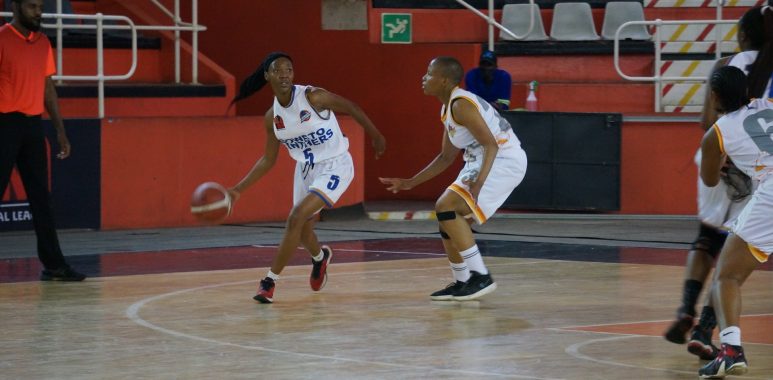
WBNL – The Regeneration of the game?
It is no secret that South African basketball has been in the midst of a downward spiral over the past decade, due in large part to broad-based mismanagement by the sports various stakeholders. Whilst all components of the game have been negatively impacted by this prevailing state of affairs, it would be difficult to argue that women’s basketball has bore the brunt of this situation. This scenario has been compounded by the disruption in basketball activities caused by the ongoing Covid-19 pandemic. As a result, one would have expected a further decline in the fortunes of South African women’s basketball. However, the success of the 2021 Women’s Basketball National League (WBNL) season did well to debunk this hypothesis and shine light on this category of basketball which has been shrouded by darkness for longer than it really need to be.
The establishment of a national women’s basketball league has been a longstanding plea from the South African basketball community. The existence of the Basketball National League (BNL) since 2013, in the absence of a female counterpart, has been widely viewed with contempt and regarded as an afront to the women’s game. This injustice was set to be corrected with the creation of the WBNL in 2020, which featured four Gauteng-based teams for its first season. Despite this positive development, the establishment of the WBNL was not greeted with a significant degree of enthusiasm from the South African basketball community. According to current South African U-17 ladies national team coach Thesline Davids, the biggest reason for lack of adherence to the league was because the four teams selected for the WBNL were located in Gauteng. Davids believes this organizational format prevented the competition from being regarded as a true representation of women’s basketball and made the WBNL seem like a mere “window dressing exercise”. This viewpoint was shared by a former South African women’s national team coach, who also believes the decision by many of the top female players resident in Gauteng and its surroundings, not to participate in the WBNL’s first season, also watered down the quality of the first season.
In light of these criticisms, the WBNL 2021 competition format was expanded to include the four Gauteng teams which took part during the first season as well as franchises from South Africa’s eight other provinces. The inclusive nature of the 2021 proved to be the spark plug which the WBNL needed to assert its role as the elite women’s basketball competition in the country. The presence of established the veterans including 2021 WBNL MVP Phumla Sethula and her former South African national side teammates Lungile Mtsweni and Modiegi Mokoka, gave us the necessary necessary for such a high-level competition. The participation of players in their prime such as Priscilla Dlamini, Fortunate Boshega, Ipeleng Nyatlo and Corinne Moussi, whom many consider the revelation of the tournament, significantly improved the quality of play. While relatively unheralded players including Rachel Ngona and the electrifying Dineo Fanampe, demonstrated that, the future of South African basketball is in good hands. The former South African women’s coach believes having all these players participating was a major reason WBNL derived so much interest and their continued involvement is necessary for the growth of the league and women’s basketball in general. Supersport commentator Lebesa Selepe agree’s with this assertion and believes the presence of these players helped to showcase the most positive aspects of women’s basketball in South Africa.
For many observers, the most important aspect of the 2021 WBNL season was the amount of exposure it gave to players. This is a viewpoint shared by David’s who was especially happy to see women representing provinces including; Eastern Cape, Free State, Mpumalanga and Northern Cape, where the local leagues are not fully functional. Davids hopes the WBNL will grow and serve as motivation for female players to improve their skill sets and level of play. Moussi also shed a positive light on the WBNL and said she was happy women finally had this platform available and hopes the next season will be longer and more competitive. Irrespective of the generally positive reviews, Selepe thinks that there is room for significant improvement from players and is confident WBNL has the potential to become a five star televised sporting competition. The WBNL was definitely a breath of fresh air which basketball badly needed, especially when compared to the ongoing controversy which has shrouded its male counterpart, the BNL, over the past few years. With a full season of preparation, uninterrupted by government-imposed lockdowns, the 2022 WBNL season will likely see major progress from the participating teams and build on the immense impact it has already has.
